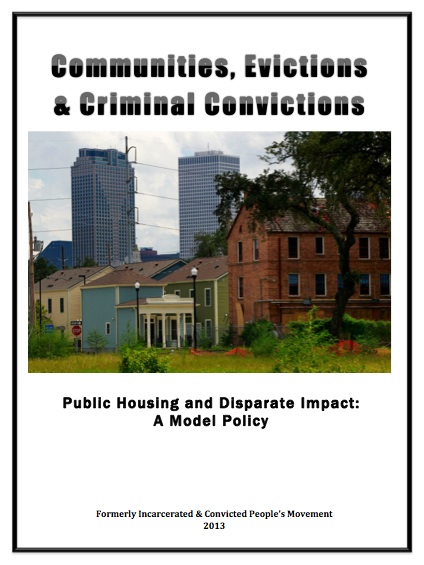 The truly remarkable thing about the hedge fund industry is that once you strip away the confusion about how shares are valued and what exactly the returns are, you find returns that are far from extraordinary. In fact, the average returns over the past 20 years for the industry — the returns actually experienced by the vast majority of hedge fund investors — are less than they would have earned in government bonds. (And this isn’t just a matter of the huge losses in 2008-2009, though obviously that didn’t help.) This isn’t to say that some customers aren’t lucky in their choice of funds, but the odds are stacked heavily against them.
The truly remarkable thing about the hedge fund industry is that once you strip away the confusion about how shares are valued and what exactly the returns are, you find returns that are far from extraordinary. In fact, the average returns over the past 20 years for the industry — the returns actually experienced by the vast majority of hedge fund investors — are less than they would have earned in government bonds. (And this isn’t just a matter of the huge losses in 2008-2009, though obviously that didn’t help.) This isn’t to say that some customers aren’t lucky in their choice of funds, but the odds are stacked heavily against them.
As if this isn’t bad enough, fraud in the hedge fund industry is hardly confined to Bernie Madoff. The unregulated and opaque nature of the funds lends itself to fraud. Plenty of managers have succumbed to the obvious moral hazard, and Simon Lack, in his book, “Hedge Fund Mirage: The Illusion of Big Money and Why It’s Too Good to Be True“, provides plenty of examples. With a hedge fund, the entire investment is at risk, so fraud is an ever-present concern.
The Hedge Fund Fraud Casebook provides over 100 examples of hedge fund fraud, all of which happened before anyone realized that Bernie Madoff, the former president of the NASDAQ and famous fund manager, was running a giant Ponzi scheme, but also before the frauds of Conrad Seghers, James Dickey, Ed Strafaci, Mark Focht, Paul Eustace, Michael Berger, and many more were uncovered. When the industry standard is to charge high fees and to tell your customers what you want and when you want, can any of this be a surprise?
Surveying the industry landscape at the end of his book, Lack says he used to blame the managers for running a rigged game, but eventually he turned around and now blames the customers for enabling this bad behavior. This is a funny kind of Wall Street blame-the-victim ethics, but it is true that a lot of institutional investors — like pension funds — have the resources to have discovered these facts on their own. And they haven’t.
Let’s be clear: any investment portfolio should be hedged somehow. Even within the world of stocks, most fools know you don’t make a portfolio out of a single company’s stock. Diversifying stocks is one way to hedge. Diversifying investments so that you’ve got some money in things that tend to go up in value when your other investments go down is also wise. This is what hedge funds originally did. But the evidence implies that the lowest cost way to do that now might be to do it yourself. Want to hedge your exposure to stocks with investments in bonds? Go find a friendly bond dealer and buy some. Or invest in a mutual fund for bonds. Want to invest in failing mortgages? You can find ways to do that without paying 2-and-20. Gold? That can be done, too, if you must. But if you go to a hedge fund, you should know that you’re walking into a casino where the odds are great that you’re not going to walk out with nearly as much money as the advertising claims. If you walk out with any at all. The occasional lucky patsy can walk out of a rigged game a winner, but that doesn’t mean the game isn’t rigged. As they say in poker, if you can’t tell who’s the patsy at the table, well, you’re the patsy.
If you’re not a “accredited” investor, who can afford to dine at tables like these, why should you care? Because, though you might not be one yourself, you probably belong to one. Institutional investors — pension funds, university endowments, banks, charitable foundations — make up a huge proportion of the money invested in the hedge fund industry, though exact data is hard to come by. You probably have a piece of this somewhere, perhaps as a taxpayer whose municipal or state government is investing heavily in hedge funds, or as an alumnus/a of some college, or as a customer at a big bank. Rhode Island’s pension fund has increased its investment in hedge funds substantially, and as much as a quarter of the value of the fund is now invested in “alternative investments”, which includes hedge funds, and private equity funds (also not an industry known for its low fees and transparency).
The stated reason behind this is to increase the returns. This is important, as a result of the 2011 pension changes. With fewer people paying less money into the pension fund, investment returns are more important than ever before to make good the state’s debts to its retirees. Perhaps it’s possible to negotiate lower fees, or find ways to increase the transparency of the funds you invest in, but there are valid reasons to be very skeptical.
Here and in other states, when your money winds up in a hedge fund, the people in charge of your money have put it in the care of fund managers whose incentives do not involve keeping your best interests at heart. And while those Very Serious People invest your money in these risky and opaque funds, they are relying on the empty promises of representatives of a corrupt industry. If they do well, you’re lucky. If, as is more likely the case, they do not — well, you’re the patsy.
Part I of this series
Updated: clarified that the RI fund’s allocation to alternative investments is not exclusively hedge funds.









